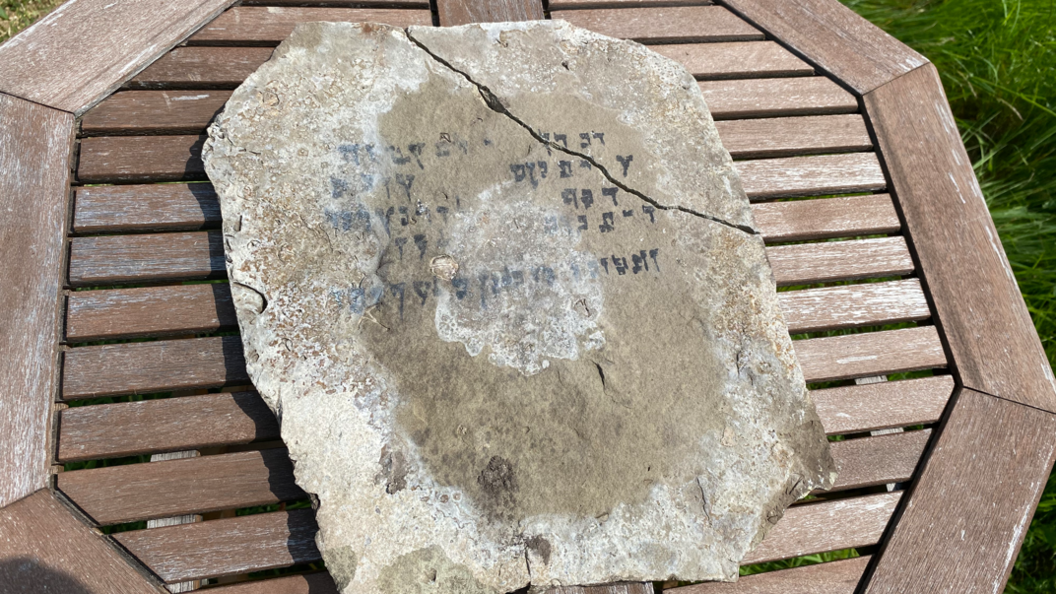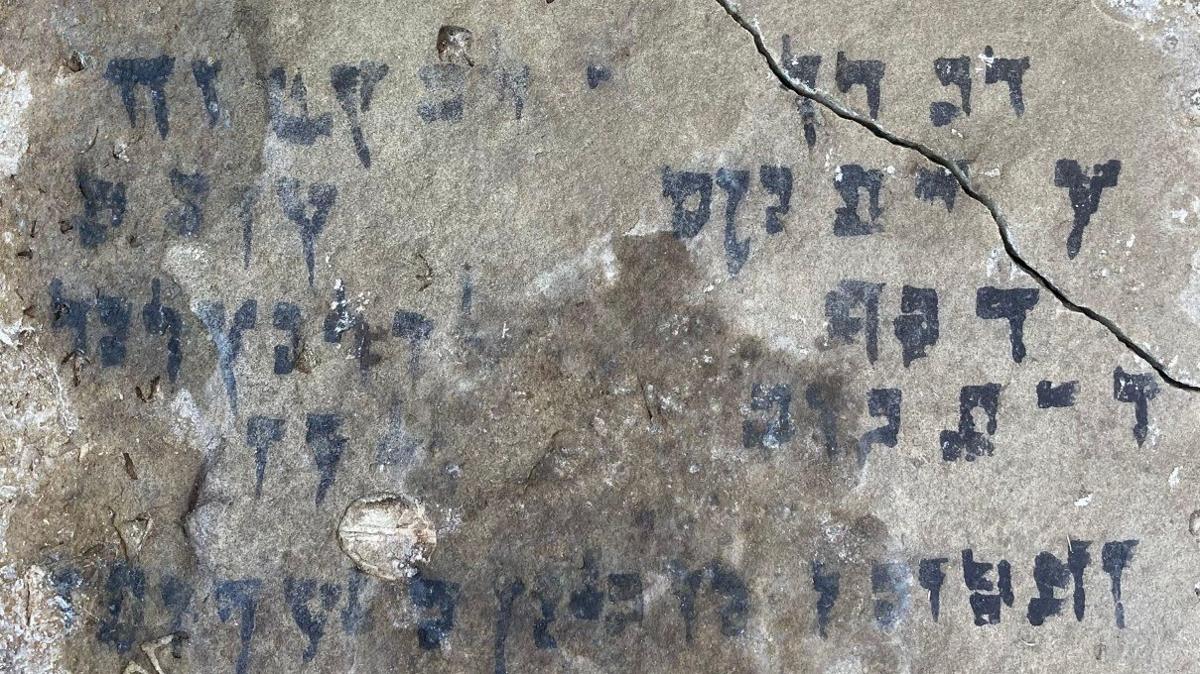Mystery Hebrew writing on slab is 'gibberish'

The inscription is thought to have been created up to 200 years ago
- Published
Mysterious Hebrew writing found by builders on a paving stone while renovating a home is essentially gibberish, a university academic has concluded.
John Adams, from Norbury in Shropshire, posted images of the stone online when it was discovered at his house, and asked for help in translating it.
He said the building had once been a pub and wondered if it could have been left by a travelling cleric.
Prof Lily Kahn, the head of Hebrew and Jewish Studies at University College London, said she and her colleagues initially thought it could be a gravestone, but on closer inspection found the words did not make any sense.
She believes the writing, which Mr Adams said was on local stone, is between 100 and 200 years old and said it was "definitely written in the Hebrew alphabet".
But, she added: "When you look at it more closely you see that it doesn't actually make any sense.
"And not only does it not make any sense in Hebrew, it also doesn’t make any sense in Yiddish or Aramaic or other languages that Jews wrote in a form of the Hebrew script."
Listen on BBC Sounds: Experts translate the Hebrew engraving on the mysterious slab
Mr Adams said all sorts of things had been discovered by his builders, including coins, pistol balls and Victorian curling tongs, but the Hebrew writing had captured people's attention.
He said it was "not exactly what you'd expect to find in your patio" and lots of people had shared or commented on his post, when he put it on X.
Initially, nobody was able to tell him what the writing said, although several users correctly identified the Hebrew script.

John Adams said his curiosity led him to seek a translation for the script
Prof Kahn suggested the writing might have been left by someone with a knowledge of Hebrew who had drunk a bit too much at the pub, or that it had once been a prop in a play at the nearby church.
When he was told about her findings, Mr Adams said: "I'm kind of relieved it wasn't a gravestone, because that would have been a bit spooky to find in your patio.
"The drunken monk I'd very happily go with that and that's a lovely story, especially in a pub."
Despite the news, Mr Adams said he was not disappointed, adding that it was good to discover "it represented something".
Follow BBC West Midlands on Facebook, external, X, external and Instagram, external. Send your story ideas to: newsonline.westmidlands@bbc.co.uk, external
Related topics
- Published15 May 2024
